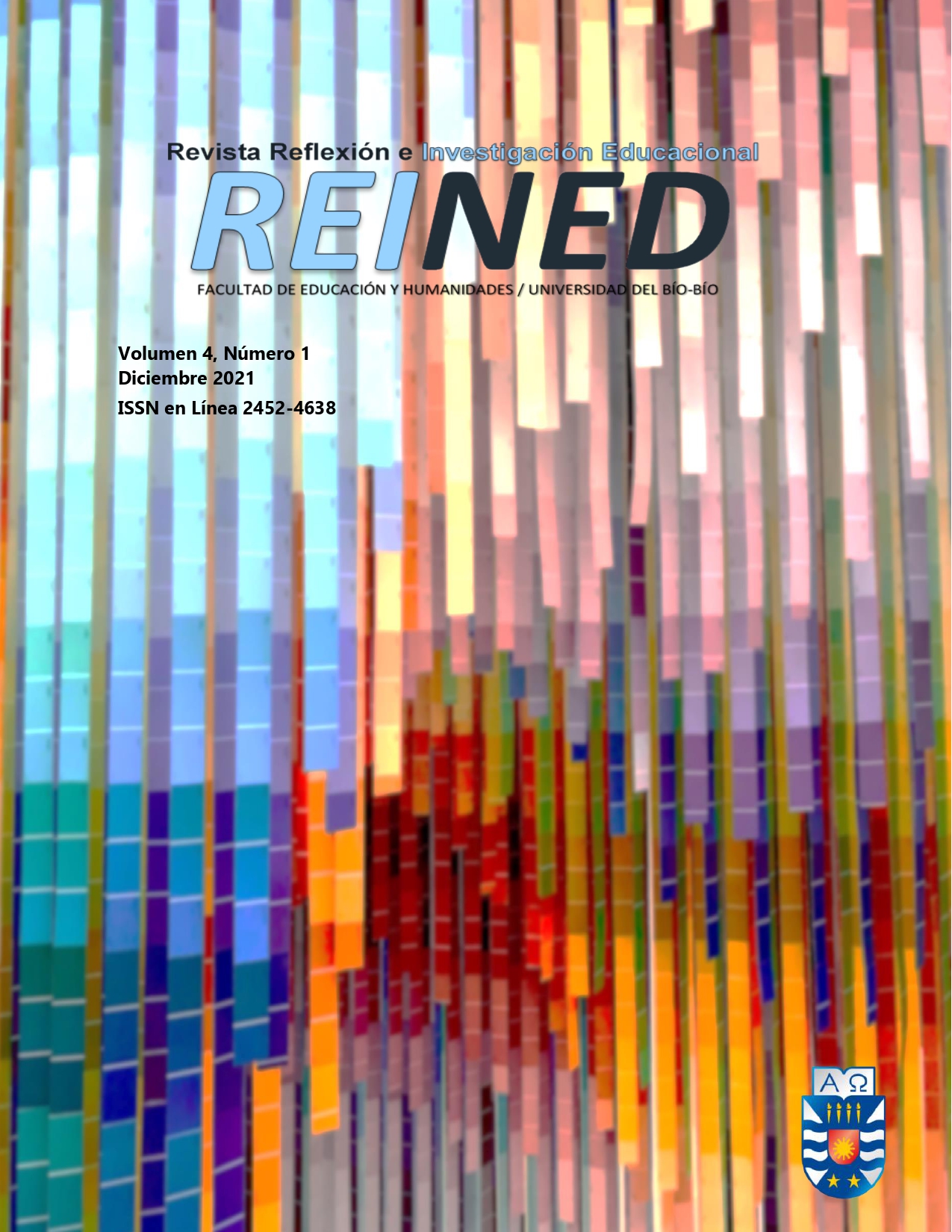Functional behavior assessment: a crucial tool in designing individualized behavioral support plans
Main Article Content
Abstract
Functional Behavioral Assessment (FBA) is a generic term to refer to various methods used to identify environmental variables that trigger and maintain behavior problems. The objective of this article is to present about the concepts involved in behavioral problems and what the functional evaluation of behavior offers for an effective approach in various contexts. The systematic review method was used, deepening the constructs: functional assessment of behavior and behavior problems. Studies show the effectiveness of the implementation of this prevention / intervention strategy. Finally, the need to implement this model and its implication in the design of effective and efficient plan support is discussed.
Article Details
References
Anderson, C., Rodríguez, B. & Campbell, A. (2015). Functional Behavior Assessment in schools: current status and future directions. J Behav Educ. 24:338–371. DOI: 10.1007/s10864-015-9226-z DOI: https://doi.org/10.1007/s10864-015-9226-z
Aydin, A. (2000). Classroom management. Turquía: Anı Publishing.
Aydogmus, K. (2010). Parent school. Turquía: Remzi Bookstore
Aykir, T., & Tekinarslan, I. C. (2012). A comparison of social skills and problem behaviors of preschool children with and without mental disability. Kastamonu Education Journal, 20(2), 627-648.
Braguim A., Aguiar, F. & Loureiro S. (2018). Behavioral problems of school children: impact of social vulnerability, chronic adversity, and maternal depression. Psicologia: Reflexao e Crítica. DOI: 10.1186/s41155-018-0089-9 DOI: https://doi.org/10.1186/s41155-018-0089-9
Bruni, T. P., Drevon, D., Hixson, M., Wyse, R., Corcoran, S., & Fursa, S. (2017). The effect of functional behavior assessment on school-based interventions: A meta-analysis of single-case research. Psychology In The Schools, 54(4), 351-369. DOI: https://doi.org/10.1002/pits.22007
Ennis, R. P., Jolivette, K., & Swoszowski, N. C. (2017). Special considerations for using functional behavior assessment and functionally-indicated interventions with students in alternative educational settings. Beyond Behavior, 26(3), 141-151. DOI: https://doi.org/10.1177/1074295617728512
Fienup, D. M., Luiselli, J. K., Joy, M., Smyth, D., & Stein, R. (2013). Functional assessment and intervention for organizational behavior change: Improving the timeliness of staff meetings at a human services organization. Journal Of Organizational Behavior Management, 33(4), 252-264. DOI: 10.1080/01608061.2013.843435 DOI: https://doi.org/10.1080/01608061.2013.843435
Fischer, M., Rolf, J. E., Hasazi, J. E., & Cummings, L. (1984). Follow-up of a preschool epidemiological sample: Cross-age continuities and predictions of later ad- patterns and children’s behavior problems from injustment with internalizing and externalizing dimensions of behavior. Child Development, 55(1), 137-150. DOI: 10.2307/1129840 DOI: https://doi.org/10.2307/1129840
Horner, R. H., Sugai, G., Todd, A. W., & Lewis-Palmer, T. (2005). School-wide positive behavior support. In L. Bambara & L. Kern (Eds.), Individualized supports for students with problem behaviors: Designing positive behavior plans (pp. 359-390). Estados Unidos: Guilford Press.
Lloyd, B., Weaver, E. & Staubitz, J. (2017). Classroom-based strategies to incorporate hypothesis testing in functional behavior assessments. Beyond Behavior, Vol. 26(2) 48-56. Hammill Institute on Disabilities. SAGE: DOI: 0.1177/1074295617711145 DOI: https://doi.org/10.1177/1074295617711145
McIntosh, K., & Av-Gay, H. (2007). Implications of current research on the use of functional behavior assessment and behavior support planning in school systems. International Journal of Behavioral Consultation and Therapy, 3(1), 38-52. DOI: https://doi.org/10.1037/h0100176
McIntosh, K., Brown, J. A., & Borgmeier, C. J. (2008). Validity of functional behavior assessment within a response to intervention framework: Evidence, recommended practice, and future directions. Assessment for Effective Intervention, 34, 6–14. DOI: https://doi.org/10.1177/1534508408314096
Monzalve, M. & Horner, R. H. (2021). The impact of contextual fit enhancement protocol on behavior support plan fidelity and student behavior. Behavioral Disorders, 46(4), 267-278. DOI: 10.1177/0198742920953497 DOI: https://doi.org/10.1177/0198742920953497
Neitzel, J. & Bogin, J. (2008). Steps for implementation: Functional behavior assessment. Chapel Hill, NC: The National Professional Development Center on Autism Spectrum Disorders, Frank Porter Graham Child Development Institute, The University of North Carolina.
Newell R, Burnard P. (2006). Vital notes for nurses: Research for evidence-based practice. Estados Unidos: Wiley Blackwell.
O'Neill, R. E., Albin, R., Storey, K., Horner, R. H. & Sprague, J. R. (2015). Functional assessment and program development for problem behavior: A practical handbook (3rd ed.). Estados Unidos: Brooks/Cole Publishing.
Oram, L., Owens, S., & Maras, M. (2016). Functional behavior assessments and behavior intervention plans in rural schools: An exploration of the need, barriers, and recommendations. Preventing School Failure, 60(4), 305-310. doi:10.1080/1045988X.2016.1144555 DOI: https://doi.org/10.1080/1045988X.2016.1144555
Overskeid, G. (2018). Do we need the environment to explain operant behavior? Frontiers in Psychology, 9, 373. DOI: 10.3389/fpsyg.2018.00373 DOI: https://doi.org/10.3389/fpsyg.2018.00373
Sanz, M. (1994). Psiquiatría del niño y del adolescente. España: Díaz de Santos
Scott, T. M., & Cooper, J. T. (2017). Functional behavior assessment and function-based intervention planning: Considering the simple logic of the process. Beyond Behavior, 26(3), 101-104. DOI: https://doi.org/10.1177/1074295617716113
Shultz, G., Havens, N., Newberry, B. & Burt, J. (2017). You can help every provider have a better understanding of functional behavior assessment! A review of the website: basic FBA to BSP. Hammill Institute on Disabilities, 26(3), 152-154. DOI: https://doi.org/10.1177/1074295617728510
Skinner, B. (1938). The behavior of organisms. Estados Unidos: Century Psychology Series
Sørlie, M., Idsoe, T., Ogden, T., Olseth, A., & Torsheim, T. (2018). Behavioral trajectories during middle childhood: differential effects of the school-wide positive behavior support model. Prevention Science, 19(2), 1-11. DOI: https://doi.org/10.1007/s11121-018-0938-x
Sucuoglu, B., & Ozokcu, O. (2005). Evaluation of social skills of mainstreaming students. Ankara University Faculty of Educational Sciences Journal of Special Education, 6(1), 41-57.
Sugai, G., Lewis-Palmer, T., & Hagan-Burke. (2000). Overview of the functional behavioral assessment process. Exceptionality, 8(3), 149-160 DOI: https://doi.org/10.1207/S15327035EX0803_2
Umbreit, J., Ferro, J., Liaupsin, C. & Lynne, K. (2007). Functional behavior assessment and function-based intervention. An effective, practical aproach. Estados Unidos: Pearson Education
Wood, B. b., Oakes, W. P., Fettig, A., & Lane, K. L. (2015). A review of the evidence base of functional assessment-based interventions for young students using one systematic approach. Behavioral Disorders, 40(4), 230-250. DOI: https://doi.org/10.17988/0198-7429-40.4.230
Yunus, M., & Metin, N. (2015). Causes of behavior problems in inclusion classes and managing strategies. Hacettepe University Faculty of Health Sciences Journal, 1(2), 474-482.
Zirkel, P. A. (2011). State special education laws for functional behavioral assessment and behavior intervention plans. Behavioral Disorders, 36(4), 262-278. DOI: https://doi.org/10.1177/019874291103600405

